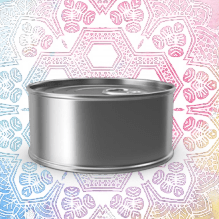The Quality Control Order (QCO) on steel and steel products issued by the Indian Ministry of Steel on July 17, 2020 is bringing serious consequences to the Indian metal packaging industry and thereby to the market for food products and other sectors in this country. Thanks to this order the big tinplate and tin-free steel suppliers are not interested in selling to Indian manufacturers, mainly due to factors like Covid-19 as pointed out by the Metal Container Manufacturers Association (MCMA) of India as they are not in a position to obtain the BIS licence, a certification required by the government since the middle of last year for major inputs required by the industry like tinplate and tin-free steel.
This new standard imposes restrictions on steel products, such as easy-open ends, peel-off ends, which the industry imports from several foreign countries and which are used to seal bottles for soft drinks, beer, juices and flavored milks, among others. Notified steel articles may not be produced, sold, traded, imported or stored unless they have this certification.
The MCMA points out that they will soon experience a severe shortage of raw material as Indian manufacturers are not ready to meet domestic demand. Not only this, in the face of this pressure, prices have increased by 15%. The association has requested the steel ministry to postpone the implementation of QCO until sufficient tinplate and tin-free steel is produced locally to meet the industry’s demand of 700,000 tonnes per annum, “as the industry is reeling under pressure due to the pandemic and forced blockade across the country”.
It has also requested that materials with other certifications such as ISO be allowed. India’s First F&B News Website points out that it is feared that its implementation will seriously affect trade and industry involved in the metal packaging sector and will result in job losses and unavailability of metal packaging for essential sectors such as food and pharmaceuticals.














